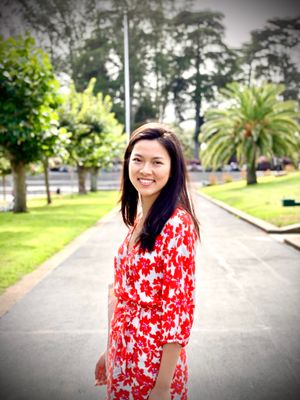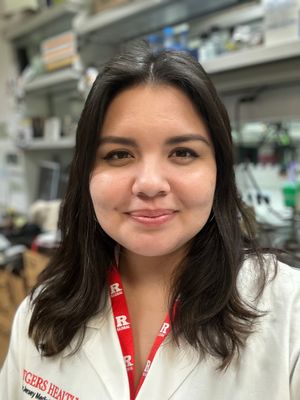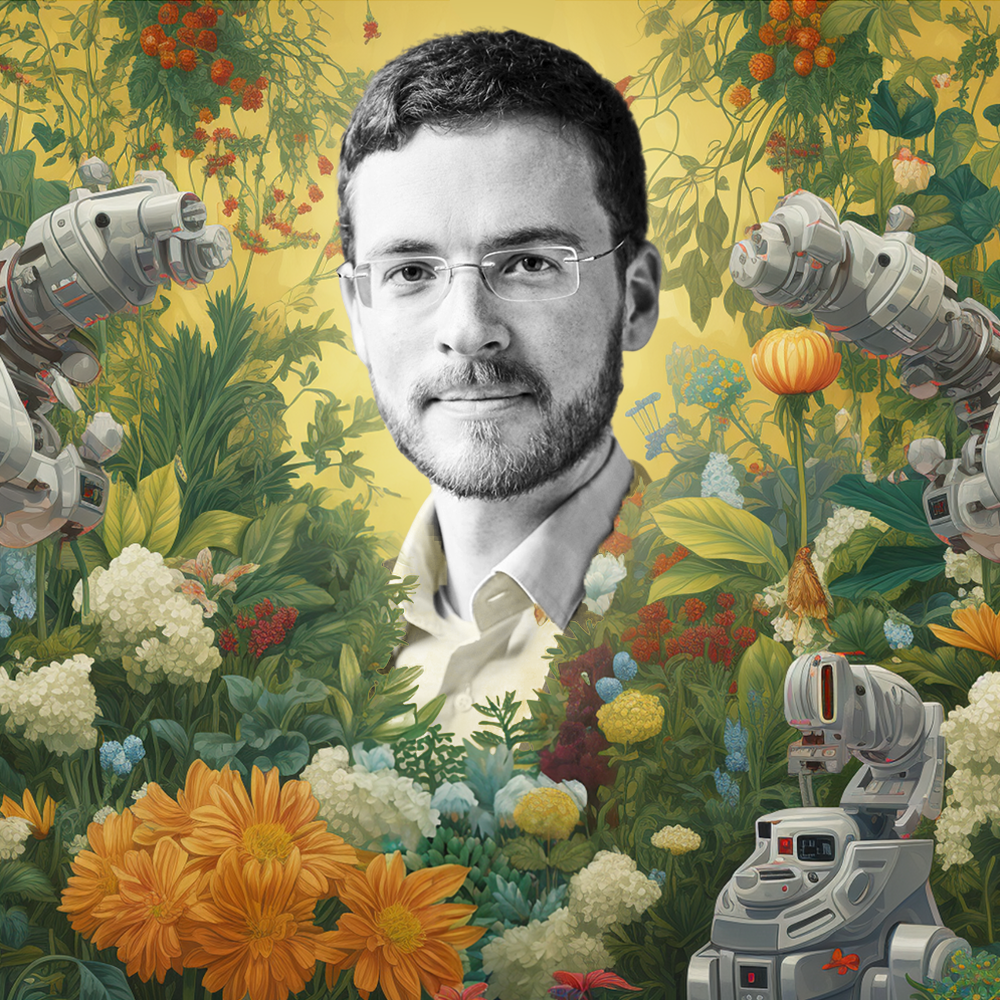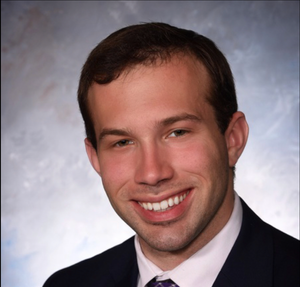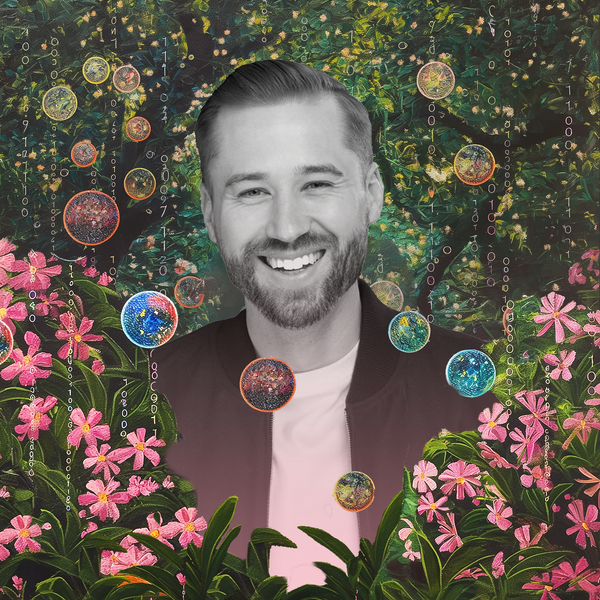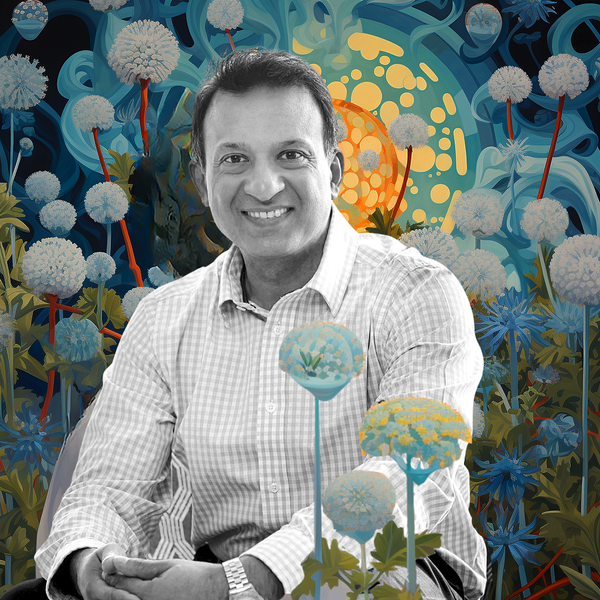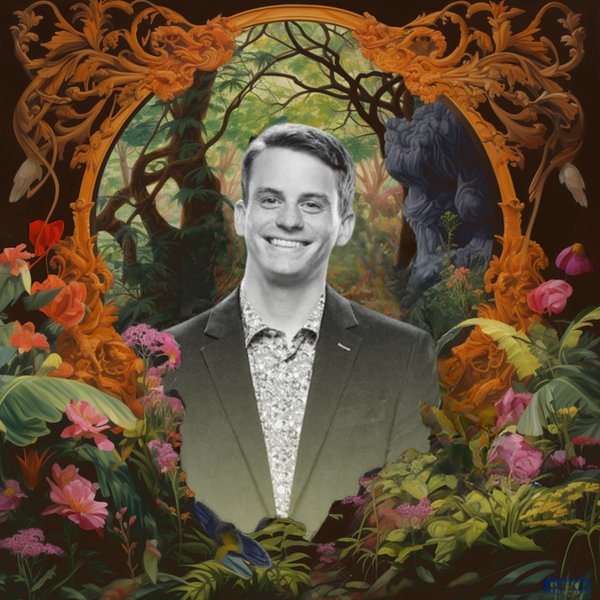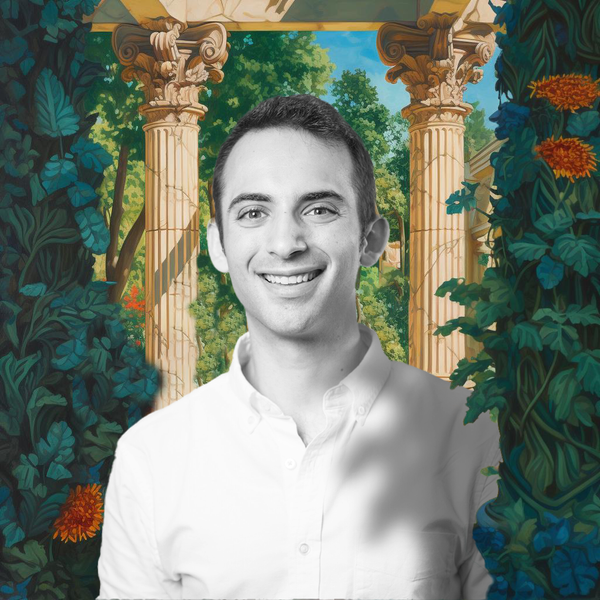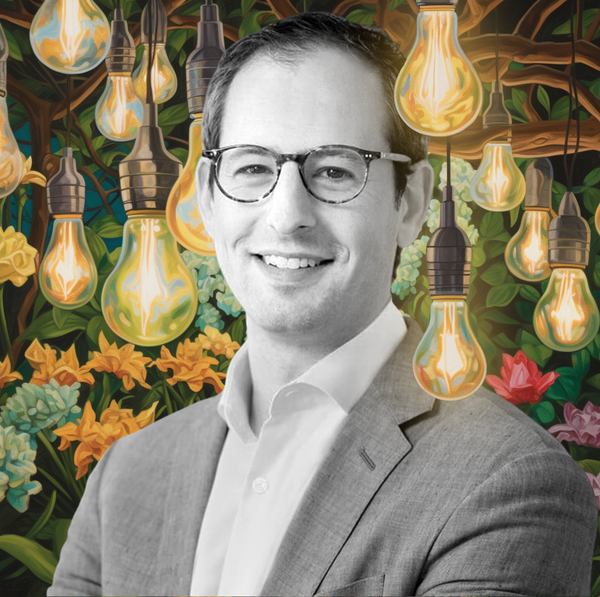| Hosts |
Sam Kessel
Jingyi Liu
|
| Editors |
Samantha Avina
Poonam Chitale
Emmanuella Nnuji-John
|
| Listen |
In this episode, we speak with the co-founder and CEO of Arctoris, Martin Immanuel-Bittner. Arctoris is a tech-enabled drug discovery company that leverages its unique automation platform, Ulysses, with advanced computational approaches to accelerate drug discovery in Oncology and Neurology. Martin discusses his career transition from medical and scientific training to entrepreneurship. We learn about his approach to team formation and strategy in the creation of Arctoris. Martin shares his advice for scientific and medical trainees interested in a career in entrepreneurship based on his experiences.
Show notes
- Introduction and Martin’s career background prior to Arctoris [00:00]
- Transitioning from Academia to Entrepreneurship [02:47]
- Inspiration for Arctoris [05:29]
- Martin’s Advice for MD and PhD Trainees to Engage in Entrepreneurship [07:02]
- Martin’s advice for making career decisions [12:08]
- Where Arctoris is today [13:27]
- What’s next for Arctoris? [24:38]
- Oxford Biotech Community [26:03]
Links
Transcript
Kessel: Could you share with us what brought you to the medical training part of your career? You clearly have a varied educational background. Could you share with us what brought you to the medical training part of your career? Were there any particular moments that shifted your path? Or was it just more of a series of small events that drove your decisions?
Bittner: Very nice to be here! My original career in medicine is pretty common in Europe. After high school, you matriculate into Medical School, which is a six year program. For me, it was always very nice to think of medicine as a discipline which brings together not only natural sciences, but also a very clear drive to helping people and making people feel better and live longer and healthier lives. In medical school, with an interest in areas like oncology, you realize that in addition to using treatments we already have, we must also think about how we can improve our current therapeutic options. And that's the reason why I got involved in research. I decided that in addition to my exposure to clinical research, I also wanted a more in-depth research experience. I decided to do a PhD at Oxford. At Oxford, it was extremely interesting to see that the reality of lab research is very different. I imagined research scientists as people who would spend their time reading, thinking hypothesizing. In reality, I realized that scientists spend a ton of time manually pipetting small amounts of liquids, and not having enough time to actually do the more creative and more hypothesis and thought driven part of research.
Liu: Was that entropy you experienced in the lab part of the reason why you decided automation was a great approach for drug discovery that people haven't haven't really tapped into yet?
Bittner: I think the starting point was this observation that the way we perform research felt very much out of sync with other industries. As a good scientist, the first thing you do is you look at the literature. My Co-founder and I went into literature and found that large pharmaceutical corporations had done studies to examine the rate of reproducible research. These studies were just done during the time of our PhDs. We didn't realize that between 80 and 90% of peer reviewed and published research findings cannot be reproduced by third parties. At that moment, we knew it was not just a personal inconvenience, it was also something which has a very tangible significant impact on research quality that is absolutely crucial for people's health all around the world. So for us, that was the starting point of something worth looking into.
I imagined research scientists as people who would spend their time reading, thinking hypothesizing. In reality, I realized that scientists spend a ton of time manually pipetting small amounts of liquids.
Kessel: As someone who didn’t follow the most traditional path, if you were to advise a medical student or a PhD, what advice do you have about opportunities? What can they look for in terms of opportunities to engage in entrepreneurship in the health sciences?
Bittner: Absolutely. The first very important step is to be confident in one's ability to step outside of what the prescribed path is for a medical student or for a medical professional. Medical School is an incredibly challenging environment that requires a lot of dedication, effort and time commitment. But at the same time the only role models we normally see are other medical professionals. Developing an understanding for the world which lies outside of the hospital outside of the medical practice setting is incredibly important. I would always encourage medical students to look beyond the immediate medical setting, be it via research electives, internships, conferences, etc to broaden one's horizon, and use that as a basis to learn more about the things that actually fascinates oneself.
Liu: What experiences did you have as a medical student and PhD student that expanded your horizons and your definition of what a meaningful contribution to health care is?
Bittner: I think what really is important is that you identify these opportunities, and that you tailor your educational curriculum as much as possible. I spent a few weeks working with the WHO, because I had a keen interest in public health and understanding better how medicine and public health interacts. I was interested in how an organization such as the WHO leverages its influence and network to promote people's health around the world. At the same time, I was also involved in co-founding a student run consultancy. We decided that there was a real opportunity to leverage everything we as students already knew to help companies in our region operate more efficiently. I think oftentimes, medical students don't even don't even grasp how much they actually learn and how much they actually possess in terms of fully transferable skills. For example, communication skills are extremely important to be able to convey a message very clearly is a core strength that medical professionals normally acquire throughout their training and career and something which can then be applied across many other disciplines.
Kessel: So shifting gears a little bit, what was some advice that helped you make your major career decisions? Were there any key pieces of advice that guided you along your path?
Bittner: I think in general, especially when making career changing decisions, it's good to seek advice, speak with mentors,and others in your support team to get different impressions as to what they see as potential opportunities and potential challenges ahead. It's extremely important to form your own opinion based on having heard many different opinions and many different angles, that you yourself might not know about your own ambitions or your own path forward. So it's important to identify people who can give you very honest feedback and be a sounding board. That is something which I myself found extremely helpful during my own path. But at the same time, it's always worth bearing in mind that even if you get feedback from different sides, in the end, you have to make a decision that you are comfortable with because it has to be your own path to one that you take forward.
Liu: Can you share some information about where Arctoris is today, and what the progress has been in the last few years since you founded it?
Bittner: Absolutely. So when we began four years ago, my co-founder and myself, we just hired wet lab scientists, and an engineer. Four years later, we're a team of 14. Things are very different in a 40 people organization compared to a three or four people organization. But it's a very natural that at some point, teams start to emerge, you have structures with teams, team leaders, who then report to the next person. You form a hierarchy, where it's not so much about creating hierarchy for the sake of it, but it's a structure that ensures information flows and reaches everyone. For example, in a drug discovery context, every single drug discovery program is evaluated based on very similar measures, and not having two different scientists perform processes in two very different ways. This has been one of the underlying realizations that led to the founding of the company, because we wanted to bring a greater degree of transparency, auditability, and structure into an inherently very messy process.
Liu: From a functional perspective for Arctoris, how did you make that decision of who was on your team?
Bittner: One piece of advice I've received from other entrepreneurs is that in the very early stages of a company, you want to hire people who have a more generous mindset. This means people who are not necessarily full subject matter experts in one very particular subfield of what you're trying to build, but rather people who have a broad enough overview and understanding of your field. This is so you can deploy them in different challenges for different issues that will emerge. For the first years of a company, that will be a million different things. So you want to have someone who has a generous understanding of different processes, and someone who is very happy to identify a problem and find a solution on their own. In the very early days, you need self-starters who are able to identify the problem and solve it on their own. At the same time, as the company grows in skills, suddenly there will be opportunities for specialists to come into the company to solve a very particular small scale challenge. And then suddenly, the profile of people you hire evolves with the company. Employees we're hiring now are different from those hired three or four years ago. The same also applies to board members, where you think about the company at a very early stage.
In the very early stages of a company, you want to hire people who have a generous mindset.
Liu: Can you walk us through that process of how you decided oncology and neurodegenerative disease were going to be your initial core focus areas?
Bittner: When we start building a company, the first question we ask ourselves is: where do we start? Because the lab research biomedical research track discoveries are immensely wide. So we narrowed the processes down to what we saw were the core processes that govern any drug discovery program to help you progress from identifying novel targets to having a qualified lead series that you can then develop further towards clinical trials. For us it became clear that oncology is a good starting point from many different angles. It is one of the largest areas within biomedical research, both in terms of research volume and number of companies involved in oncology research. It's an area where there's a huge unmet clinical need. But at the same time, it does make sense to think about adding a second area that you would have expertise in. One of the biggest obstacles to ultimate success for biotech companies is that some of the programs will fail. And one of the ways in which you can reduce the risk is by having a broader portfolio of opportunities that you pursue. So in our case, we build a portfolio of opportunities within oncology. But we then chose neuroscience and especially in neurodegeneration as a second area for us to grow into. In both these areas we felt that our platform could deliver strong value both for our own pipeline, as well as for the companies we've partnered with.
Kessel: Pivoting a little bit, what has been the most exciting part of your experience at Arctoris so far?
Bittner: No two days are the same. I've learned to interact with patent attorneys, investors, sales and business development activities. I've been hiring people I felt were a good fit for the company. I've sadly also had to let go people who turned out not to be a good fit for the company. I've had an immense breadth of exposure over those past few years, which goes far beyond what in the very same amount of time I could have had in any other career. That is for someone who is a naturally curious person, a very good way to spend your time because you're constantly learning, evolving, pushing yourself and getting better at doing things. I’m incredibly grateful for the opportunity I was given and also for the support I've had from my co-founder, our team, our investors, and my mentors.
Kessel: What have been the biggest challenges of wearing ‘different hats’ running the company? What have been the biggest challenges of starting Arctoris?
Bittner: The challenges revolve around never having enough time to dedicate all of the things you should be doing. You have to have a very good plan, what you focus on. Our mentors have always reminded me that for a young company it is extremely important to stay on track. It's more important for you to say no to things as opposed to saying yes.
Liu: Oxford has been a foundational cornerstone of your career, and in Arctoris. Can you give some more context for our listeners about what the biotech ecosystem in Oxford is like these days? For listeners who are not part of the internal Nucleate community, Nucleate is actually expanding to Oxford, UK.
Bittner: Oxford has this immense advantage of being one of the world's best universities. For centuries, many of the brightest minds from all around the world have come to Oxford to do research. And that is an extremely fertile ground for not only an academic career in many different disciplines, but also to start a company. Oxford forms part of the so-called golden triangle between Oxford, Cambridge, and London. Within this triangle, you'll find the majority of the UK biotech life sciences and pharma companies.
Liu: What is next for Arctoris in terms of milestones?
Bittner: We are a company of around 40 and have a range of early stage drug discovery programs in oncology. Our objective for the next two and a half years is to accelerate our progress in terms of team growth, tech fund development, and pipeline development. We see ourselves more than doubling over the next 12-24 months. We are also now looking into how we can accelerate progress even further by integrating even more technologies into our robotics machine learning setup. And we currently have programs in the late discovery phase. The next big milestone is to bring programs up to the clinical stage. We want to have Arctoris clinical stage compounds within the next two and a half years.

